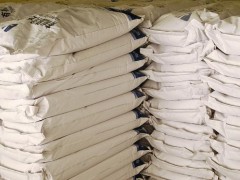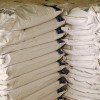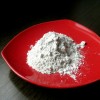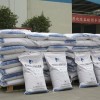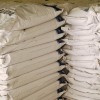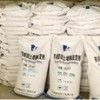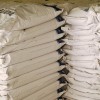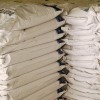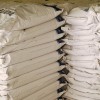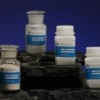BK®-283 is an organoclay (tetraallkyl ammonium bentonite) for solvent-based systems oflow to medium polarity.
1. Advantages:
☆High gelling efficiency over low to medium polarity organic liquids.
☆Ideal thixotropic and anti-sagging property.
☆High viscosity and excellent thickening property over a wide temperature range.
☆Imparts particle suspension, preventing hard settling of pigment and fillers.
☆Exerts strong film reinforce action in organic binder systems.
2. Typical Properties:
|
Color
|
Appearance
|
Density
|
Moisture
(@105℃,2hrs)
|
Fineness through 200 mesh
|
Loss on Ignition
( @1000℃ )
|
|
Light Yellow
|
Free Flowing Powder
|
1.6g/cm3
|
≤3.5%
|
≥95%
|
≤42%
|
3. Typical Applications:
|
●Petroleum Lubricating grease
|
●Mineral Oil Lubricating grease
|
|
●Polyester Lubricating grease
|
●Inks
|
|
●Vegetable Oil Lubricating grease
|
●Adhesives
|
|
|
|
4. Incorporations:
BK®-283 belongs to the conventional type of organoclay group, which requires mechanical energy, shear forces applied with a goods dispersion equipment, and a chemical (polar) activator to reach the proper level of delamination of the organoclay platelet stacks.
Polar Activator: Dosage of polar activator (such as 95%ethanol, 95%methanol, 95%acetone or 95%propylene carbonate) is30%-45% by weight of BK®-283.
It is always recommended to determine the proper level of addition by experiment. Either defect or excess of chemical activator would result
inpoorer viscosity development.
inpoorer viscosity development.
Recommended Procedures:
1) Heat the specific oil to60℃~70℃。
2) Add BK-283 (7-10% by weight of total formula),mill for 5-10min.
3) Add polar activator(3% by weight of total formula), then add other additives,mill for 25-30min.
4) Using pump for getting through colloid grinding or homogenizer.
5) Remove air,filtrate and package.
In other systems like inks, heating is not necessary. Increasing dispersion speed,prolong dispersion time or enhance the temperature will improve the efficiency of BK-283.
5. Recommended Levels:
The amount of BK®-283 rheological additive required depends upon the type of organic system and the degree of thickening or other properties desired. Addition levels are typically between 0.2%-2.0% based on the total
formulation weight.
formulation weight.
6. International Countertypes: Claytone®40

